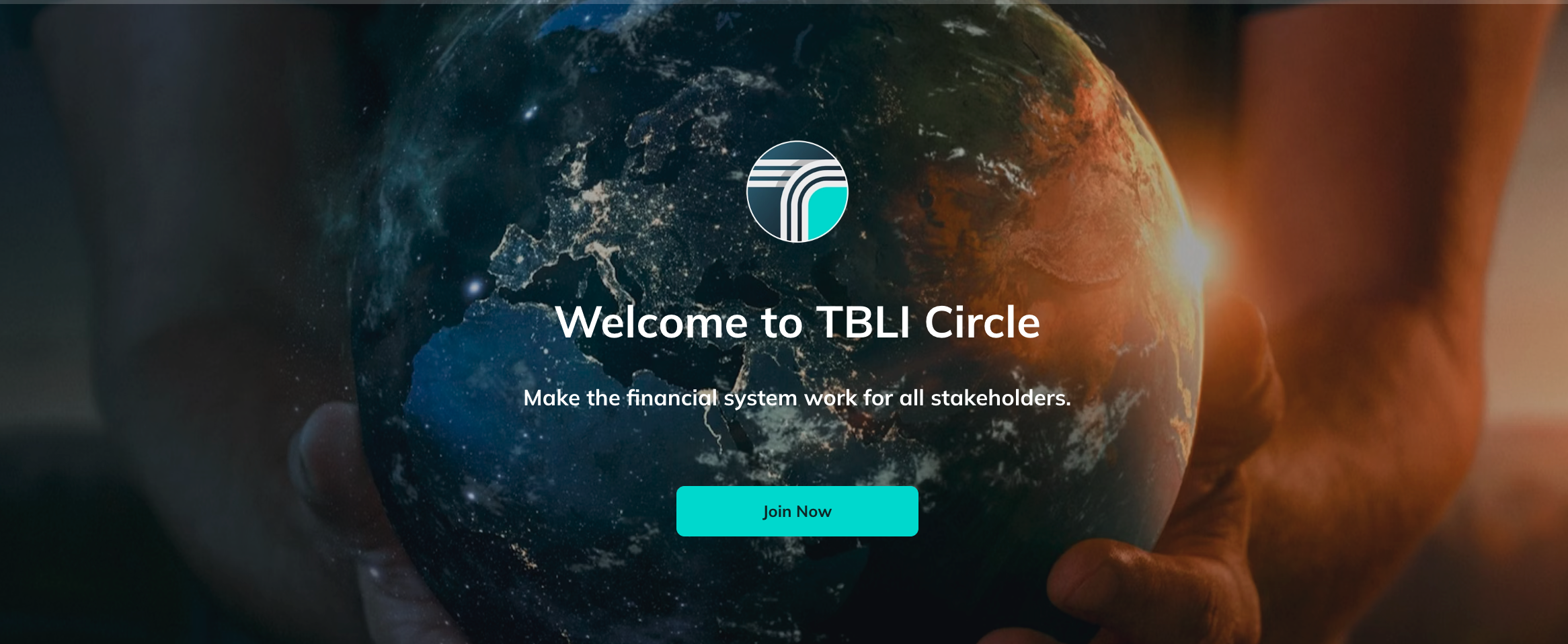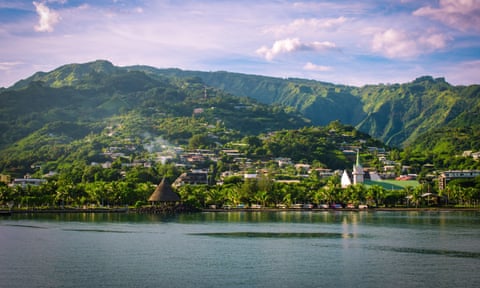
Your weekly guide to Sustainable Investment
TBLI Radical Truth Podcast
Freedom and Prosperity Under Attack by the Anti-ESG Crusade /w Andrew Behar
INCREASE CORPORATE RESPONSIBILITY AND REDUCE SHAREHOLDER RISK
As You Sow believes that shareholders are a powerful force for creating positive, lasting changes in corporate behavior.Over the past century, corporate power has become the most dominant force on the planet.
Of the 100 largest economic entities in the world, nearly 70% are corporations. This concentration of resources gives companies power and influence over their workers, customers, and the communities in which they operate.It is critical for corporate leaders to address the impact of their policies and actions. By ignoring this impact, they are creating risk for their customers, employees, shareholders, and themselves. Ultimately, companies that view the world not in months, but in years, decades, and generations will be able to reduce their long-term risk and ensure success.
Shareholder actions press corporations to undertake this broader risk analysis and make decisions that benefit people, the planet, and profit over the long term.
Since 1992 As You Sow has utilized shareholder advocacy to increase corporate responsibility on a broad range of environmental and social issues. As shareholder advocates,
As You Sow communicates directly with corporate executives to collaboratively develop and implement business models that reduce risk, benefit brand reputation, and increase the bottom line while simultaneously bringing positive environmental and social change.
Andrew Behar is CEO of As You Sow,
What will you learn:
- The Power of Shareholder Advocacy
- Long-Term Risk Management for Companies
- Examples of Shareholder Action in Practice
TBLI Capital Connect
Your Gateway to Mission-Aligned Investors
Why TBLI Capital Connect?
✅ Access to a curated network of high-net-worth investors and venture capitalists
✅ AI-powered tailored matchmaking to align you with the right funding partners
✅ Streamlined process to fast-track your fundraising goals
✅ Different tiers of service, offering you the most suitable service according to your budget.
More details here
Would you like to book a call to discuss in detail? click here
TBLI Virtual Mixers
Join the TBLI Virtual Mixer every last friday of the month at 16:00 CET.
Connect with mission-driven investors, entrepreneurs, and changemakers creating real value.
Why should you be there?
✅ Meet decision-makers in sustainable finance who care about real impact.
✅ No pitches, no fluff—just meaningful conversations that lead to real deals.
✅ Expand your network with people who align with your values and mission.
This isn’t just another virtual event. It’s where the right people come together to create lasting change.
Will you be in the room?
🔹 Spots are limited—secure yours now.
Join TBLI Circle and expand your Impact network

Step into a community of purpose-driven professionals transforming finance for a sustainable future. At TBLI Circle, you’ll connect with authentic leaders, discover breakthrough opportunities, and gain insights that drive real impact. Expand your network, elevate your influence, and accelerate your journey in ESG and impact investing. Don’t just talk about change—be the change.
Expand your network, elevate your influence, and accelerate your journey in ESG and impact investing. Don’t just talk about change—be the change.
Mountain Hazelnuts Secures Landmark International Investment, Strengthening Bhutan’s Sustainable Agriculture Sector

Mountain Hazelnuts (MH), Bhutan’s first fully foreign direct investment (FDI) and a leading force in sustainable agroforestry, has secured a groundbreaking US$7.9 million equity investment to expand its climate-resilient farming initiatives.
The investment into the holding company, Mountain Hazelnuts Group PTE. Ltd., Singapore (MHG), comes from its long-term partner Mirova – an affiliate of Natixis Investment Managers dedicated to sustainable investment – contributing US$3.9 million, and from Finnfund – a Finnish development financier and impact investor and member of Team Europe – contributing US$3 million. The balance includes initial commitments from Management & Founders and a Private Investor, all part of the current equity round.
Supporting Sustainable Land Use and Local Community Co-Benefits
Founded in 2009, Mountain Hazelnuts aims to create a profitable business model that provides long-term income for vulnerable communities in Bhutan by planting 10 million hazelnut trees to restore degraded mountain slopes.
The company works with Bhutanese smallholder families and community groups, offering income-generating opportunities while contributing to the restoration of the country’s fallow and degraded lands. In partnership with the Royal Government of Bhutan (RGoB), MH guarantees the purchase of all harvested nuts at a fixed price, eliminating market risk for growers and ensuring a profitable crop.
Every orchard site undergoes ecological inspection prior to approval and planting, ensuring alignment with national conservation principles.
Setting a Precedent for Sustainable Development Investment
This landmark investment is supported by the European Union (EU) and the European Fund for Sustainable Development Plus (EFSD+), a core financing tool of the EU’s Global Gateway strategy. This strategy promotes sustainable investments in EU partner countries.
Finnfund and Mountain Hazelnuts played a pivotal role in achieving Bhutan’s eligibility for EFSD+. Both Finnfund and Mirova are leveraging an EFSD+ guarantee under the Carbon Sinks program, which supports investments in forestry, agroforestry, carbon sink ecosystems, and the blue economy. The Carbon Sinks initiative is managed by EDFI Management Company SA.
With this investment, Mountain Hazelnuts is now fully funded for the next five years, ensuring the successful rollout of climate adaptation grafting programs, factory expansions, and international certifications such as Rainforest Alliance and Organic.
The funding will also enhance MH’s market positioning, enabling it to secure premium pricing for Bhutanese-grown hazelnuts in global markets.
This milestone investment underscores growing international confidence in Bhutan’s sustainability-driven private sector, setting a precedent for future European Development Financial Institutions and foreign direct investments in the country. It also reinforces Finland’s role in supporting Bhutan’s economic resilience and commitment to environmental sustainability.
ACCELERATE 2050

📅 June 9-11 | Brindisi, Italy
🎤 Want to speak? Apply now
💰 Limited-Time Discount! Use code sm20 at Eventbrite checkout for 20% off (valid until April 18th).
Register here
Golding closes first private equity impact fund at €115m

The alternatives investments specialist said the fund has invested in nine private equity funds and that it plans to launch a successor climate technology fund later in the year.
Golding Capital Partners, the Munich-based asset manager, said it had made a final close on its first private equity impact fund of funds, having amassed €115m in commitments. It is now preparing the launch of a successor fund.
The Golding Impact 2021 fund was launched in late 2021, at which point the asset manager was seeking to raise €300m to invest in green solutions, sustainable agricultural technology, financial services and other sustainable sectors.
Thus far, the fund has invested in nine private equity funds with a total of over 100 portfolio companies, spread across regions, sectors and fund managers around the world. Golding said the portfolio would be expanded to include further funds, with the aim of boosting the portfolio to more than 200 companies.
Investor commitments
The fund has attracted commitments from pension funds, insurance companies, savings banks and foundations from Germany, Switzerland, Sweden and Portugal, with around 20% of the capital coming from new investors.
Golding said it had applied the EU’s Sustainable Finance Disclosure Regulation (SFDR) requirements to the funds in which it invests, even if they are outside the European Union, since 2023.
Christian Schütz, managing director and head of sustainable investing at Golding, said the approach made the impact strategy Article 9-compliant.
“This has been achieved thanks to our close collaboration with target funds and our classification process which we developed with external advisors. It allows us to expand the impact universe for Article 9 investors significantly,” he said.
The Golding impact fund made its first exit in January, when the Inverness Graham Green Light Fund in which it had invested sold Concord Servicing, a US-based financial technology and loan servicing company for residential solar energy and energy efficient home improvements. Concord was acquired by private equity firm GTCR for an undisclosed amount.
Inverness Graham had been able to increase Concord Servicing’s EBITDA by more than 2.5 times by modernising its proprietary software platform and expanding into new markets, according to Golding.
Climate-tech focus
Golding cited a 2025 global investment trends study by consultancy firm Capgemini as a sign that investor interest in sustainable products is growing. In the survey, 62% of around 2,500 executives contacted worldwide said they were planning to increase their investments in sustainable technologies, up 10% from the year before.
Breakthroughs are expected in materials technology, agricultural robotics and artificial intelligence for industrial efficiency over coming years. The firm said sectors such as AI-controlled crop spraying systems and battery storage were maturing and achieving economies of scale that made them increasingly attractive investment targets.
A follow-on product focusing on climate technology companies in Europe and North America is being prepared with a view to a launch in the fourth quarter 2025.
Source
‘Playing gods with the cradle of life’: French Polynesia’s president issues warning over deep-sea mining

Exclusive: Moetai Brotherson fears environmental risks of controversial practice and says independence from France must not be ‘rushed’
French Polynesia’s president has issued a stark warning over the risks of deep-sea mining, saying it will be allowed in his territory “over my dead body” as he argues the potential for environmental damage outweighs any benefits.
Moetai Brotherson’s comments to the Guardian come as countries in the Pacific and elsewhere grapple with whether to extract minerals from the sea floor. Deep-sea mining has not yet begun, but some companies and countries are exploring the practice, which could start in the coming years.
“We’re playing gods with the cradle of life – and that’s way too dangerous,” Brotherson said from his office in Papeete.
Asked if he would consider deep-sea mining in the future, Brotherson said: “Over my dead body.”
French Polynesia is located in the South Pacific Ocean about halfway between Australia and South America. It consists of more than 100 islands, including Tahiti and Bora Bora. Although technically still under French sovereignty, the islands are largely autonomous, with their own government, currency and local laws.
Under French Polynesia’s statute of autonomy, France has ultimate jurisdiction over what it deems “strategic materials”, which includes the minerals found in the seabed. Brotherson’s administration is attempting to get the statute modified.
Brotherson was elected in 2023 as a member of the pro-independence Tāvini Huiraʻatira party. He said deep-sea mining was a “lure” for Pacific Island countries, which might see the practice as a “shortcut to a better social and economic situation”.
Deep-sea mining involves extracting minerals and metals such as nickel, cobalt and copper from the deep seabed, at depths greater than 200m. These minerals are used in a range of products including batteries, electronics and renewable energies.
Proponents say mining the deep sea will support the green energy transition and aid the development of Pacific Island economies. Others argue the practice could have a devastating impact on the seabed, and the long-term consequences for the environment and ocean ecosystems are uncertain.
Deep-sea mining has divided Pacific island governments. While some, including French Polynesia and Micronesia, are against the idea, others such as the Cook Islands and Nauru have been actively pursuing partnerships with mining companies as a way to diversify their economies.
In February, the Cook Islands signed a strategic partnership deal with China which included cooperation to explore deep-sea mining in the Cook Islands’ exclusive economic zone (EEZ). In March, Kiribati announced it would also be exploring a deep-sea mining partnership with China. Other large states including Russia and South Korea hold exploration contracts, and companies are pushing to begin mining the deep sea.
While Brotherson supports the right of the Cook Islands to exploit its deep-sea resources, he doesn’t agree with it.
“From our perspective, it’s very disturbing because it sets a precedent and also ignores the fact that undersea pollution doesn’t have boundaries,” said Brotherson, who noted that pollution from mining in the Cook Islands could end up in French Polynesian waters.
Dr Lorenz Gonschor, an expert on Pacific regionalism and governance at the University of the South Pacific, said exploration of deep ocean resources was likely to happen in the future.
He said as “large ocean nations” the emerging practice gave Pacific islands “tremendous importance in the sense that they will now potentially have huge economic resources”.
The French president, Emmanuel Macron, currently supports a ban on deep-sea mining but Brotherson worries that could change with the election of a new president in France.
France has complicated relationships with its Pacific Island colonies, which also includes New Caledonia and Wallis and Futuna. New Caledonia saw violent unrest and protests last year sparked by voting reforms proposed by the French parliament.
Brotherson has stated publicly that he would consider holding a referendum on independence from France in the next 10 to 15 years.
France, however, has shown no indication of moving towards decolonisation for French Polynesia, rejecting calls for independence at the 2023 UN special committee on decolonisation and continuing to maintain an active military presence in the islands. Macron, during his last visit to French Polynesia in 2021, emphasised strengthening the existing relationship.
Read full article
Congress is searching for trillions of dollars in cuts. Will the oil industry’s tax breaks skate by?

With a $4.5 trillion fight over tax cuts looming, the oil and gas industry wants to protect billions of dollars in tax benefits it enjoys and get new ones, too.
If the only things certain in life are death and taxes, you might say corporate lobbyists spend much of their time trying to avoid at least one of the two. Few industries understand this better than oil and gas, which has benefited for at least a century from some tax rules that save them billions of dollars in payments annually.
The world’s nations have agreed to phase out fossil fuel subsidies globally. The Biden administration pledged to axe them domestically. Still, they persist.
Now, with Republicans in Congress and the Trump administration determined to enact $4.5 trillion in tax cuts and desperately looking for revenue and spending cuts to pay for them, some environmental advocacy groups are highlighting the tax benefits that flow to one of the world’s most profitable industries, which the Biden administration estimated at $110 billion over the decade ending in 2034.
The oil and gas industry, meanwhile, is playing both offense and defense, trying to maintain the benefits it has while working to enact at least one new one, which would shield some oil companies from a tax enacted as part of the Inflation Reduction Act of 2022.
One of the biggest sources of new revenue from the IRA was a corporate alternative minimum tax, which was meant to prevent companies that reported large profits to investors from using loopholes to pay little to no taxes.
The minimum tax applies to all industries. For oil and gas, it has hit some of the large independent drillers in particular (as opposed to the “integrated” majors like ExxonMobil and Chevron). The money involved is significant: According to a new analysis by United to End Polluter Handouts, a coalition of environmental and progressive groups, at least three companies—EOG Resources, APA Corp. and Ovintiv—reported paying nearly $200 million collectively to the Treasury under the minimum tax since it was enacted in 2022.
U.S. Sen. James Lankford (R-Okla.) has introduced a bill that would change the calculus by allowing oil companies to deduct some of their largest expenses against the minimum tax.
Lankford’s bill is included as a priority in the policy blueprint of the American Exploration & Production Council, which represents large independent oil and gas companies.
Lukas Shankar-Ross, an author of the new minimum-tax analysis and deputy director of the climate and energy justice program at Friends of the Earth, pointed out that the Lankford bill would either deepen deficits or force more cuts to programs like Medicaid or other assistance for low-income Americans.
“I think it is as shameful a thing for me to imagine as is possible now,” Shankar-Ross said.
The oil and gas sector is the top industry contributor to Lankford’s campaigns in recent years, giving more than $546,000 since 2019, according to OpenSecrets.
A spokesperson for Lankford said, “Promoting American energy independence is a reversal of the Biden Administration’s policies. Strong domestic energy production makes us less reliant on adversaries, and empowering oil and gas producers makes the United States stronger. Nobody is looking at cutting Medicaid benefits in order to pay for tax cuts, but fraud, waste, and abuse in the program should be examined.”
When it comes to the largest oil and gas companies, however, their focus might be elsewhere. When the American Petroleum Institute issued its five-point policy roadmap for the Trump administration and Congress in November, it highlighted a need to maintain what it called “crucial international tax provisions.”
Just one of those provisions, the so-called dual capacity taxpayer rule, is expected to save oil and gas companies $71.5 billion over a decade, according to Biden administration estimates.
Broadly speaking, federal tax law allows corporations to credit taxes they pay to foreign governments on overseas income against their U.S. tax bills, to avoid being taxed twice. The dual capacity taxpayer rule allows oil companies wide latitude in defining what exactly constitutes a tax payment, with the result being that they can count royalties and other payments as taxes, said Zorka Milin, policy director at the Financial Accountability & Corporate Transparency Coalition, which works to combat harmful impacts of illicit finance.
In fact, in some cases U.S. oil and gas companies might pay more in taxes and other payments to foreign governments than they do to the United States.
Read full article
https://mail.tbligroup.com/emailapp/index.php/lists/cm138dw4qa9f1/unsubscribe
